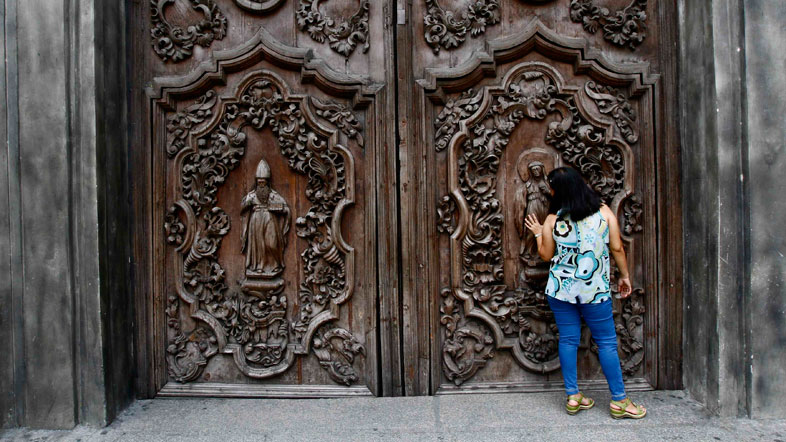“Whoever welcomes you welcomes me, and whoever welcomes me welcomes the one who sent me.” (Mt. 10:40)
This chapter of Matthew’s Gospel contains the accounts of Jesus’ choice of the twelve apostles and of his sending them out to preach the Good News.
They are named one by one, which shows the personal relationship they had built with the Master, having followed him from the beginning of his mission. They had learnt his way of doing things – being close above all to the sick, to sinners, to those considered as possessed by evil spirits and to people on the margins of society who everyone else avoided and condemned. Only after these concrete signs of love for his people did Jesus himself prepare to announce that the Kingdom of God was near.
The apostles were, therefore, sent in the name of Jesus as his ‘ambassadors’. It is Jesus who must be welcomed through them.
Often key figures in the Bible, who were openhearted towards an unexpected guest, found they had received a visit from God himself.
Even today, especially in cultures that retain a strong sense of community, guests are considered to be sacred visitors and given the best places, even if they are unknown to the host.
Whoever welcomes you welcomes me, and whoever welcomes me welcomes the one who sent me.
Jesus gave instructions to the twelve: they had to set out barefoot and with little baggage: a light bag, a single tunic… They had to regard themselves as guests, willing to humbly accept the hospitality of others. They were to freely offer care and support to the poor and leave the gift of peace with everyone they met. Like Jesus, they would be patient when faced with misunderstandings and persecution and be sure that the Father’s love would help them.
In this way, those who were fortunate enough to meet them would truly experience God’s tenderness.
Whoever welcomes you welcomes me, and whoever welcomes me welcomes the one who sent me.
Like the disciples, all Christians have a mission; they should bear witness to the love of God that they have encountered. They should do this firstly through their actions and then through their words whilst maintaining an attitude of meekness so that God’s love becomes a joyful reality for many, indeed for all. And because they have found acceptance with God, in spite of their human frailty, the first witness they can give is to welcome their neighbour warmly.
In a society often marked by a search for success and selfish independence, Christians are called to show the beauty of a sense of family which recognizes the needs of all and sets mutual love in motion.
Whoever welcomes you welcomes me, and whoever welcomes me welcomes the one who sent me.
This is what Chiara Lubich wrote about ‘welcome’ as understood in the gospel: “Jesus was the manifestation of the Heavenly Father’s totally welcoming love for each one of us and of the love that we should therefore have for one another. Let’s try to live this Word of Life in our families, associations, communities and workplaces. We can do so by eliminating any sense of judgment, discrimination, prejudice, resentment or intolerance towards our neighbours. We often and easily acquire such attitudes which can make us seem cold and undermine relationships; they are like a layer of rust that blocks mutual love. Accepting people who may be very different from us lies at the basis of Christian love. It is the starting point, the first step in building up the civilization of love and the culture of fellowship to which Jesus calls us today.”
Letizia Magri

